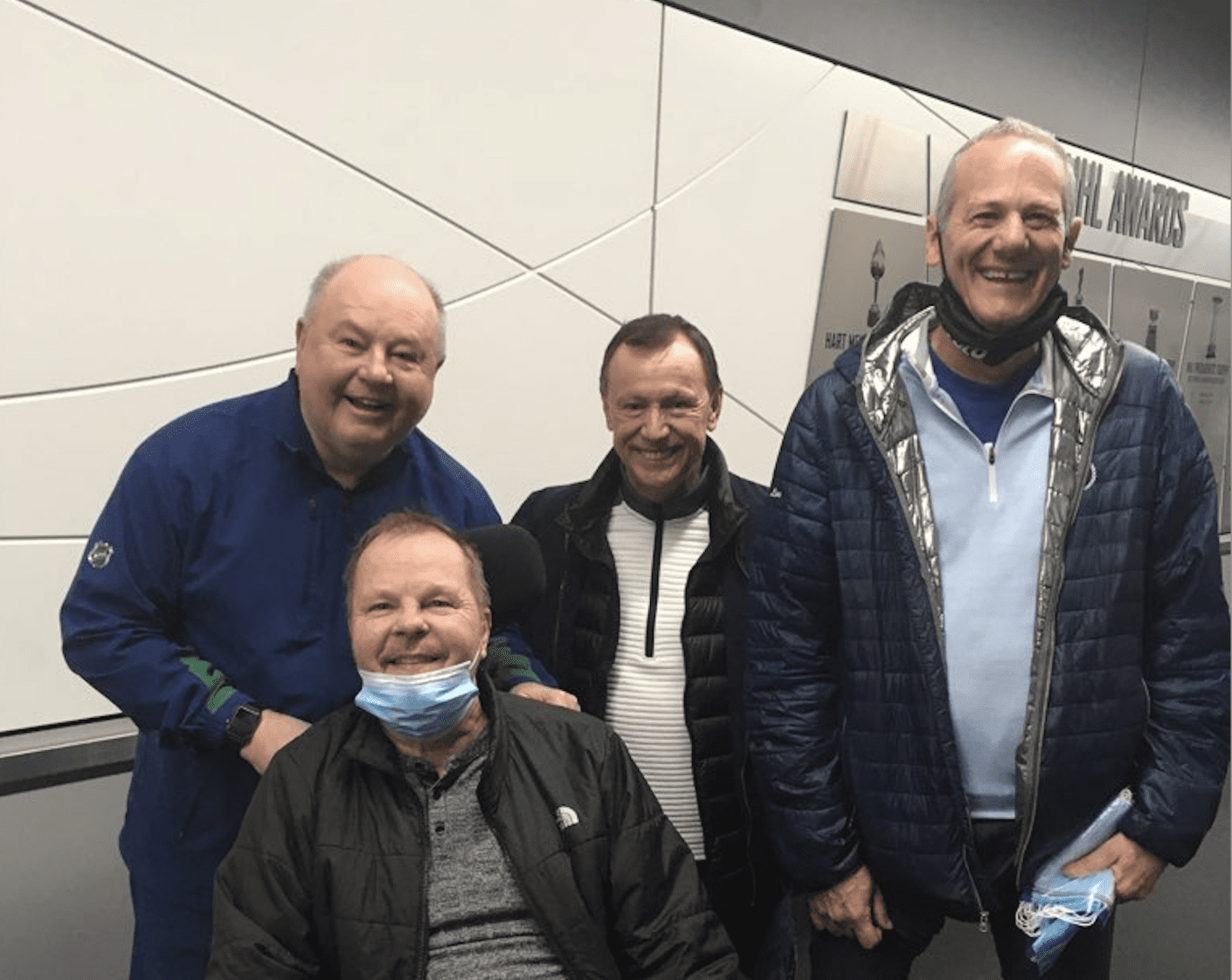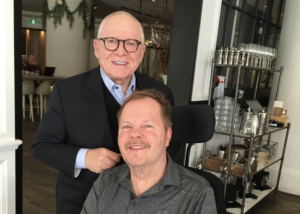Vancouver Canucks
Canucks Ties: Saving ALS Lives, Including Mark Kirton’s

Part 2 – How does one go about trying to find a cure for a deadly disease like ALS when one’s own clock is ticking? Former Vancouver Canucks center Mark Kirton can answer that question.
“There’s 189 trials going on around the world,” Kirton points out, “and right now there are only three treatments, two that are approved.”
None of which serve as a cure, just as a potential slowdown.
“There’s some cutting edge ones that are very exciting, but these things take time,” Kirton said. “To go through three trials it could be a two year process. And once they do hit on something, it’s a long process to go through the red tape. Approval through Health Canada, approval through the provinces and get it to the patients, right?”
Most ALS patients don’t have that kind of time, with longevity for most of them at five years.
“They’re looking for markers,” Kirton states as he begins a detailed medical description of the brain blood barrier.
There is a cure possibility out there, but like with anything else in the medical research realm, or any realm for that matter, it takes money.
So Kirton works.
“He’s now on to a real big thing,” Bruce Boudreau says. “Promotes ALS and finding the cure, and he’s a driving force of it. And his word goes a long way, because people remember him in Vancouver, in Detroit, in Toronto, what kind of player he was. He was the hardest working guy on the ice and he’s the hardest working guy doing this, and he was the hardest working guy in real estate, which made a great career for him. More power to him.”
“It’s getting more and more out there,” Kirton said, “and last year when Major League Baseball came up with June 2nd as Lou Gehrig Day, that was huge.”
Still the disease’s most famous patient, the one the malady is named after, Lou Gehrig passed away on June 2nd, 1941. Eighty years later MLB decided to make calling attention to his life and death an annual event.
Seems like a long time without a cure for something, but ALS is a quiet killer, somewhat rare, one that doesn’t get the attention of more widesspread or higher profile afflictions. Kirton believes that will change simply based on the notoriety of those suffering through it. He says about fifty ex-NFL’ers have ALS, probably eighty ex-professional athletes in all, including a handful in the hockey world.
We all know someone. Scott Matzka who played at the University of Michigan and won a Kelly Cup with the Atlantic City Boardwalk Bullies, John Martin, the larger-than-life Bruins/NESN photographer, both gone. Calgary Flames Assistant GM Chris Snow battles it, many knew his father Bob, who passed from ALS in 2018.
Remember the ‘ice bucket challenge’ in 2014. That was a big deal, trendy, and that was for ALS. It came and went.
Kirton is doing whatever he can within the hockey community to crank it back up again.
“I went on a mission last April,” Kirton explains, “and I got about 33 former Hall of Famers, sportscasters, NHL players, to do a sixty to ninety-second ALS promo video. I put out two-a-day for the month of June.”
Big Shout Out to my good friend Ron Maclean HNIC
for Helping #ENDALS @RonMacLeanHTH #StrikeoutALS #LouGehrigDay @ALSCanada @ALSAction Plse help the cause (Retweet) & Donate to https://t.co/Xx4m062pBg @ScottFightsALS @bsw5020 pic.twitter.com/7XyUnYgHcp— Mark Kirton (@KirtSpeaksALS) May 29, 2021
“That’s the selflessness, that’s Mark,” Jim Nill said last week. “He’s all about the team, he’s all about helping people. He’s got a great family, his family support has been unbelievable, his wife and his children, how they’ve embraced this situation and it’s not easy. But instead of Mark and them feeling sorry for themselves, they’re trying to use this, their platform, to help other people down the road and it’s been an amazing journey to watch what he’s done, how he’s handled this situation.”
“He’s a team first guy, it’s not about him, he’s trying to help people first and foremost despite a very serious personal setback,” his friend Jim Rutherford pointed out. “That’s how he is.”
And after Kirton finished explaining a couple of the medical maneuvers that might become available, he spoke with optimism.
“It’ll be interesting to see, this drug, and what it does when it actually gets right to the spot it needs to go, so that’s exciting,” Kirton said. “They need game changing funds to put into trials like the ones I just suggested.”
Back in Ontario, Kirton is still adjusting to the time change and the physical effects brought on by flying back and forth and spending three nights in Vancouver last week. Not a routine endeavour for one in his condition, but a challenge worth confronting for the priceless opportunity to visit with Jim, Jim and Gabby.


Former NHL players Jim Rutherford and Mark Kirton were traded for one another on December 4th, 1980. They became friends the following summer.
Along with the travelling contingent of three other Marks.
“They were all for coming and helping him and he was able to get out here,” Rutherford points out,” which I think was really good for him.”
“He said ‘you treat me the same way you treated me all the time, don’t pity me’,” Boudreau recalls. “Just coming in here and wanting to see his friends, whether it be Jim Rutherford, Jim Nill, those he played with, it was great to see him.”
“I really admire Kirt’,” Nill says. “It would be easy for him to sit back and deal with it maybe personally and be quiet about it, but he’s not doing that, he’s showing people that you can live with it. He’ll deal with it, whatever comes upon him, and let’s try to find a cure for this anyway we can.”













